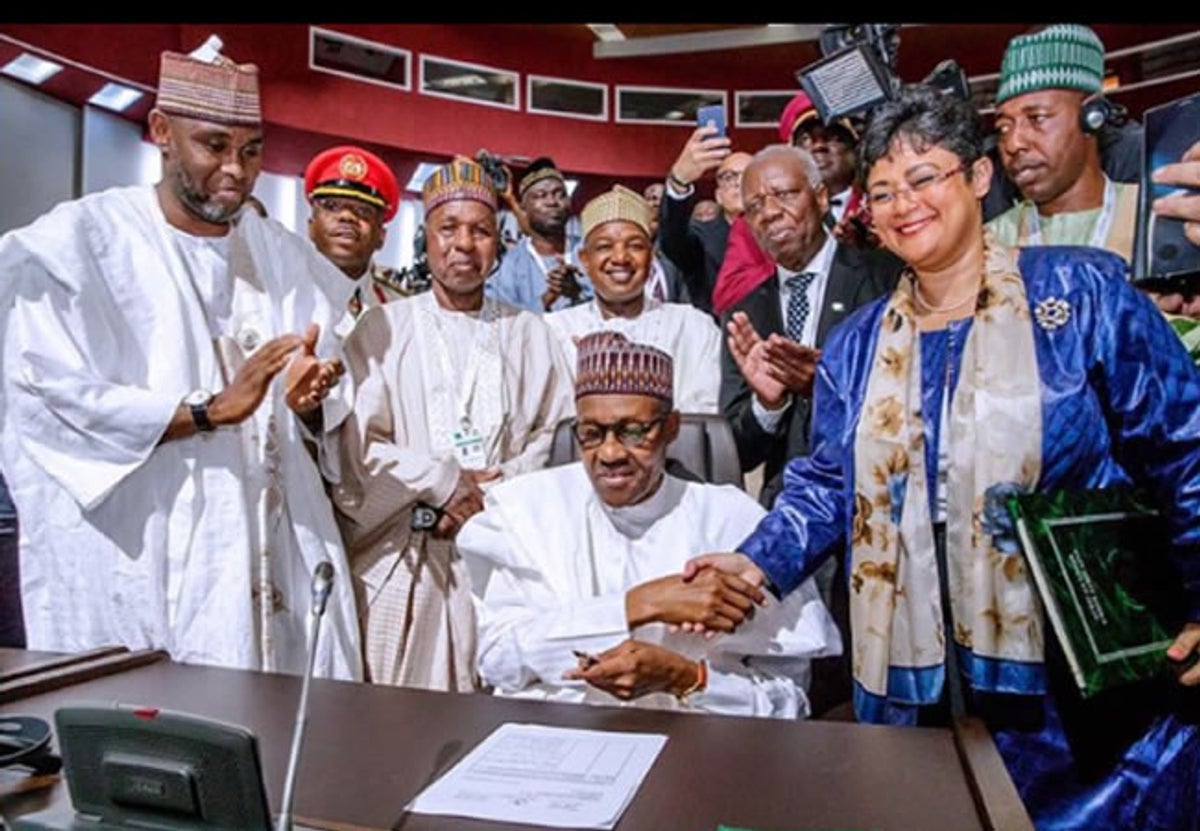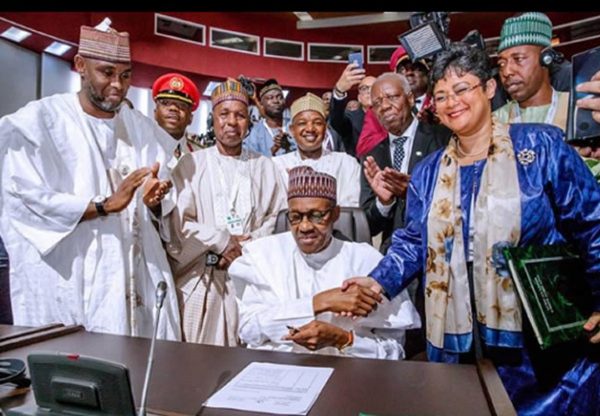After months of holding out against growing pressure, Nigeria has finally signed up for the Africa Continental Free Trade Agreement. News of this broke on Sunday, 7th July 2019 after the country’s President Muhammadu Buhari added his signature to that of 52 other heads of state who had already agreed to lead their nations to the continent-wide economic alliance.
More widely referred to by its abbreviated name, the AfCTFA, the program was originally conceived to bring all the countries of the African Union into a single market and eventually guarantee the free movement of people and economic goods across the continent.
As part of the agreement, tariffs on most goods will be removed. Some analysts say that this could grow regional trade by as much as 20%. If it takes off, the economic zone could be worth up to $3.4 trillion.
Support for the AfCTFA has grown since 2018 when it was signed up to by an initial band of 44 countries. At the time, a number of AU members failed to opt into the agreement; Africa’s two biggest economies, Nigeria and South Africa, were among this group. Most of the outstanding countries have since shifted stances and moved into the potential bloc.
President Buhari signed the AfCTFA on Sunday, making Nigeria the 53rd country to opt into the agreement. According to government officials, this action was the culmination of months of ‘consultations with stakeholders’ and poring over the possible implications of the program for Nigeria’s commercial environment.
The signing took place in Niamey, Niger, where the 12th Extraordinary Session of the African Union is currently taking place.
Prior to the government’s U-Turn on the issue, concerns had been raised in government quarters and by some lay observers over the consequences that an open-border continent-wide trade bloc could have for Nigeria. Opposition to the signing of the agreement revolved around the need to protect fragile local industries from cheap imports from other African countries.
However, several economic analysts have criticized the government’s initial position. They noted that Nigeria and the wider African continent had more to gain from opening up borders to trade than what they could potentially lose.
At the moment, only about 16% of the trade which goes on in Africa happens between African countries. Of the top ten importers of Nigerian products in 2018, only one, South Africa, is an African country. It comes behind India, the Netherlands, Spain, and France on that list.
The AfCTFA could tweak this picture of trade on the continent a bit, but it is unlikely to drastically change things soon after it comes into force in 2020. Poor interconnecting infrastructure such as bad or non-existent roads, rail links, and flight routes are obstacles which will need to be dealt with if the new bloc is to achieve its aims.
Featured Image Source: Punchng


